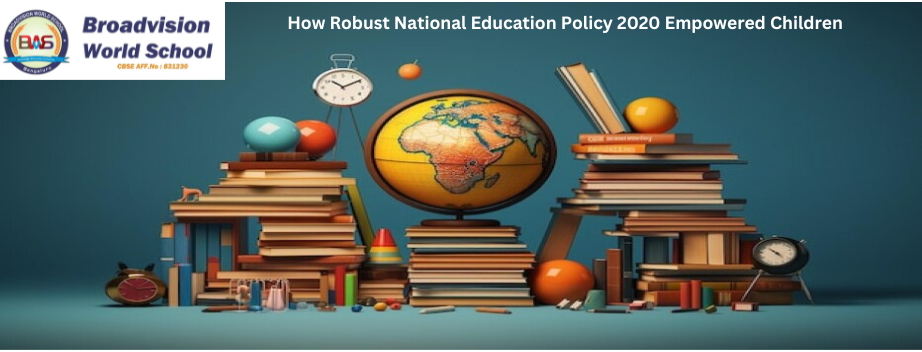Giving your child the best start in life
-
First Floor, 10A Chandos Street London New Town W1G 9LE
Get In Touch
Monday to Friday: 8.30am – 02.00pm
Saturday, Sunday: Close
Email: user@domainname.com
Phone: +44 (0) 207 689 7888

The National Education Policy 2020 (NEP 2020) marks a significant overhaul of the Indian education system. With a vision to create a more inclusive, holistic, and flexible education framework, the NEP 2020 aims to prepare children for the challenges of the 21st century. But how exactly does this new policy help children in school? Let’s dive in and explore.
Understanding the NEP 2020 requires a look back at the history of Indian education policies. From the colonial era’s rigid systems to the more inclusive policies post-independence, India has continuously evolved its educational framework. Major milestones like the Education Commission (1964-66) and the National Policy on Education (1986) laid the groundwork for NEP 2020, aiming to address contemporary educational challenges.
One of the standout features of NEP 2020 is its emphasis on holistic and multidisciplinary education. This approach encourages students to learn across various subjects, breaking down traditional silos. By promoting a broader understanding of arts, sciences, and vocational subjects, children develop a well-rounded skill set.
Gone are the days when students had to stick rigidly to science, commerce, or arts streams. NEP 2020 offers flexibility, allowing students to choose subjects based on their interests and career aspirations. This flexibility helps in fostering a love for learning and reduces academic pressure.
The policy shifts the focus from rote memorization to fostering critical thinking and creativity. Classrooms will become spaces where questioning and innovative thinking are encouraged, preparing students for real-world problem-solving.
Early childhood education is critical for cognitive development. NEP 2020 emphasizes foundational literacy and numeracy from the early stages, ensuring that every child builds strong basic skills. By focusing on early education, the policy aims to eliminate learning gaps that often widen with age.
Research shows that quality early education has long-lasting benefits on a child’s overall development. NEP 2020’s focus on ECCE means children will receive a solid foundation, preparing them better for the academic challenges ahead.
NEP 2020 advocates for a significant shift from traditional rote learning methods to experiential learning. This means more hands-on activities, practical lessons, and real-world applications, making learning more engaging and effective.
Technology plays a crucial role in modern education. The policy promotes the use of digital tools and resources, transforming classrooms into interactive learning environments. This integration helps students become tech-savvy and better prepared for future technological advancements.
NEP 2020 puts a strong emphasis on inclusivity. By implementing measures to bridge gender and social gaps, the policy ensures that every child, regardless of their background, has access to quality education. Scholarships, incentives, and support systems are part of this inclusive approach.
Children with disabilities often face significant barriers in education. NEP 2020 addresses this by promoting inclusive education practices and providing necessary support and resources, ensuring that every child can learn in a supportive environment.
Traditional exams often fail to capture a student’s true potential. NEP 2020 introduces formative assessments, which provide continuous feedback and track students’ progress throughout the year. This approach helps in identifying learning needs early and supporting students effectively.
Board exams have traditionally been high-stakes, causing immense stress among students. The new policy aims to reduce this pressure by diversifying assessment methods and focusing more on overall development rather than just exam results.
Teachers are at the heart of any educational reform. NEP 2020 emphasizes continuous professional development, ensuring that teachers are well-equipped with the latest pedagogical skills and knowledge to effectively support student learning.
By incorporating technology into teacher training, NEP 2020 empowers educators to use digital tools to enhance their teaching methods. This not only improves classroom experiences but also helps teachers manage their tasks more efficiently.
Introducing vocational education early helps students acquire practical skills that are directly applicable in the workforce. NEP 2020 integrates vocational training into the school curriculum, ensuring that students develop a balance of academic knowledge and practical skills.
Skill-based education prepares students for diverse career paths, reducing the gap between education and employment. This approach ensures that students are not just academically proficient but also ready to take on real-world challenges.
The policy promotes the use of the mother tongue or local language as the medium of instruction, especially in the early years of schooling. This helps children understand concepts better and fosters a deeper connection with their cultural heritage.
Learning in multiple languages has cognitive benefits and enhances communication skills. NEP 2020’s focus on multilingual education aims to create individuals who are culturally aware and linguistically proficient.
To keep up with the digital age, NEP 2020 emphasizes expanding digital infrastructure in schools. This includes smart classrooms, e-learning materials, and improved internet connectivity, ensuring that all students have access to digital learning resources.
Online education has become increasingly important, especially post-pandemic. NEP 2020 supports the integration of online learning, providing flexibility and broadening access to quality education across the country.
The policy promotes decentralization, giving more autonomy to local schools and communities. This allows for more context-specific decisions that cater to the unique needs of each school, improving the overall quality of education.
Involving the community in school management fosters a supportive environment for students. NEP 2020 encourages community participation, ensuring that education is a collective responsibility.
Recognizing the importance of mental health, NEP 2020 includes provisions for mental health support in schools. This includes counseling services and wellness programs to ensure that students’ emotional well-being is taken care of.
Emotional well-being is crucial for academic success. The policy’s focus on mental health means students have access to the support they need to thrive both academically and personally.
Parental involvement is essential for a child’s educational success. NEP 2020 encourages parents to be active participants in their children’s education, fostering a supportive home learning environment.
Communities play a vital role in the success of schools. By promoting community involvement, NEP 2020 ensures that schools receive the necessary support and resources from their surroundings, creating a more enriched educational experience for students.
The National Education Policy 2020 is a comprehensive framework designed to transform the Indian education system. By focusing on inclusivity, flexibility, and holistic development, NEP 2020 aims to create a supportive and enriching environment for children in schools. This policy not only addresses the current educational challenges but also prepares students for future success.

Comments are closed